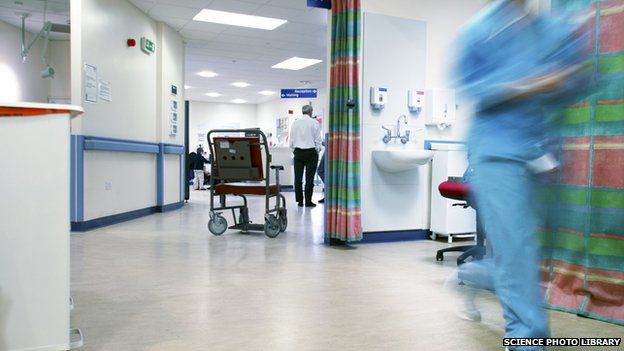Poor hospital discharges blamed for readmissions
- Published

The way hospitals discharge patients is probably contributing to high levels of readmission, a year-long Healthwatch England inquiry has found.
It said many hospitals failed to notify relatives or check patients had any accommodation before discharging them.
The watchdog looked at data from Freedom of Information requests, patient surveys and more than 3,000 patient reports to its local teams.
Anna Bradley, who chairs Healthwatch England, called some of it "shocking".
"There is a huge human and financial cost of getting discharge wrong," she added.
One report said an 81-year-old stroke survivor had been sent home in a taxi while his wife was told he was being transferred to a rehabilitation centre.
Another involved a young man with severe mental health problems who had been discharged with no consultation with his psychiatrist and no treatment.
Of the 120 hospital trusts that responded to Freedom of Information requests:
- half were failing to record whether the patient's home environment was suitable
- a third were failing to record whether the patient's GP or carer had been notified of new medicines
In 2014, the National Audit Office reported the NHS saw a million readmissions within 30 days of discharge, costing an estimated £2.4bn a year.
A spokesman for NHS England said hospitals should be making sure patients are appropriately discharged.
"We need to ensure appropriate care is put in place before a patient leaves hospital which needs strong joint working across the health service."
- Published24 February 2015
- Published17 November 2014
- Published28 January 2015
- Published13 February 2015